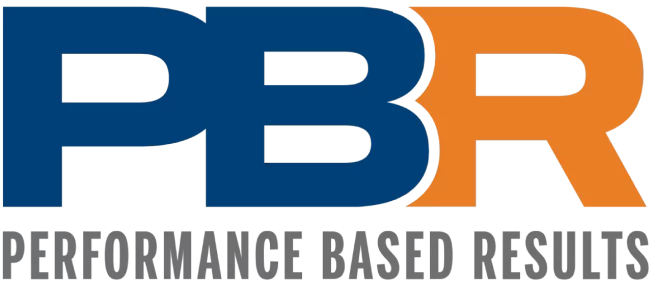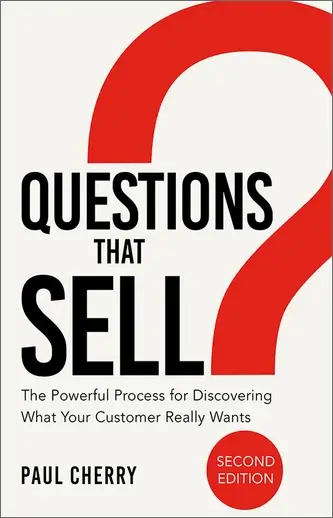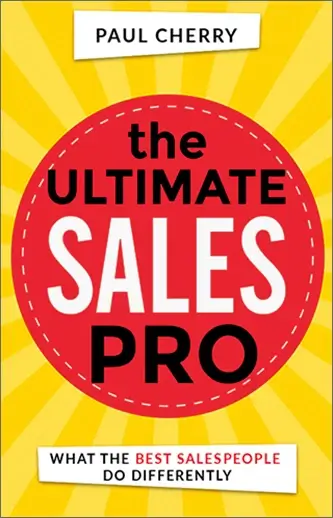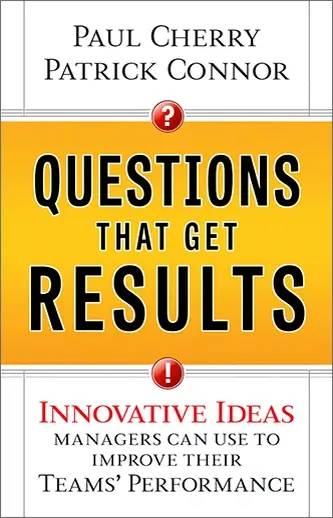For sales professionals striving to excel, effective time management is a key factor in reaching high-performance levels. At PBResults, we recognize that managing time goes far beyond ticking off tasks—it’s about making the most of every minute to generate real results.
Our tailored time management techniques help leaders and their teams refine processes, focus on priority tasks, and ultimately elevate sales performance.
Our approach to time management goes beyond traditional methods. We tailor our strategies to fit the specific challenges faced by Presidents, CEOs, Vice Presidents of Sales, and sales managers, ensuring that every minute spent leads to greater productivity and profit.
By honing in on the critical skills of prioritization, delegation, and goal setting, your team can operate with laser focus and make the most of every opportunity.
Mastering Time Management in Sales: Why It Matters
In the dynamic realm of sales, mastering time management is key to unlocking greater success. It’s about making smarter choices ensuring every moment is spent on what truly matters.
At PBResults, we focus on teaching sales teams how to manage their time effectively. This enables them to stay productive, close more deals, and build stronger connections with clients. By optimizing time, leaders and their teams can consistently achieve higher results and stay aligned with their business objectives.
Common Time-Wasting Activities in Sales
Every second matters in sales, yet many professionals get caught up in activities that drain time and hinder productivity. Recognizing and addressing these common time-wasters is key to improving performance and driving results.
One major issue is devoting too much time to administrative tasks. While tasks like data entry and report preparation are necessary, they often consume hours that could be better spent on client interactions and closing deals. By automating or delegating routine tasks, sales teams can reclaim valuable time for higher-impact activities.
Another major time-waster is chasing unqualified leads. Many sales professionals spend significant time nurturing prospects who are unlikely to convert. It’s crucial to have a clear process for qualifying leads early on, ensuring that efforts are directed toward those with real potential.
By refining lead qualification strategies, salespeople can avoid wasted effort and focus on the opportunities most likely to drive results.
The impact of poor time management on sales success
Effective time management is essential for the success of any sales team. Without it, even the most experienced salespeople can struggle to hit their goals. Poor time management can negatively impact all sales areas, resulting in missed chances, decreased efficiency, and disappointing outcomes overall.
One of the most immediate impacts of poor time management is a decline in productivity. Sales professionals who fail to prioritize effectively often feel overwhelmed by an endless list of tasks.
Instead of focusing on high-value activities—like engaging with prospects or closing deals—they get bogged down by administrative duties, meetings, or chasing unqualified leads. This lack of focus dilutes their efforts, resulting in fewer conversions and missed sales opportunities.
Proven Strategies for Effective Time Management
Optimizing performance and reaching sales targets relies on managing time well. It begins with setting clear priorities and aligning daily tasks with the most important sales goals.
Additionally, using time-blocking techniques can reduce distractions and enhance focus. However, it’s also vital to periodically review and adjust your strategies, ensuring they align with changing objectives. These proven strategies can transform your sales time management approach, increasing productivity and success.
Prioritization techniques for sales tasks
Prioritization techniques are essential for optimizing sales tasks and elevating sales performance. Effective prioritization helps sales professionals focus on the most critical activities, ensuring no valuable opportunity is overlooked.
Firstly, understanding the difference between urgent and important tasks can quickly improve time management skills. Salespeople must determine which tasks directly impact sales outcomes and prioritize them accordingly.
In addition, employing tools like the Eisenhower Matrix can help categorize tasks based on urgency and importance. Moreover, setting clear goals and deadlines helps keep sales teams aligned and motivated.
Consequently, these prioritization techniques for sales tasks boost productivity and enhance overall sales performance by enabling teams to focus on strategies that drive revenue and close more deals efficiently.
Using technology to streamline sales processes
In today’s fast-paced business world, using technology to streamline sales processes helps improve time management. Advanced tools and software boost efficiency, allowing sales teams to spend more time closing deals and less on administrative work.
For instance, Customer Relationship Management (CRM) systems can automate client interactions, track sales activities, and provide valuable insights with minimal effort.
Moreover, scheduling software ensures effective time allocation by minimizing missed appointments and double bookings. In addition, data analytics tools offer actionable insights by analyzing sales metrics, thus helping prioritize high-value leads.
Embracing technology boosts productivity and fosters a competitive edge, allowing sales teams to outpace competitors and achieve outstanding results in increasingly complex sales environments.
Setting SMART goals for better focus
Setting SMART goals is a highly effective approach to quickly improve your time management skills. SMART stands for Specific, Measurable, Achievable, Relevant, and Time-bound, serving as a reliable framework for structuring objectives.
By defining your goals clearly and precisely, you establish a clear path to success and maintain focus. For instance, instead of resolving to “improve sales performance,” set a SMART goal like “increase monthly sales by 10% within the next quarter.”
These well-defined objectives keep your tasks aligned with broader business strategies and contribute to a strong sales culture where team members are motivated to achieve specific outcomes.
Consequently, such goals allow for straightforward progress tracking. In other words, SMART goals empower decision-making and prioritize tasks, optimizing sales efficiency and boosting performance. Therefore, incorporating this strategic approach is key for effective time management in sales.
3 Steps to Implement Time Management In Your Company
Effective time management in sales can significantly boost your team’s productivity and results. Firstly, assess your current workflows to identify inefficiencies.
Secondly, set clear priorities and goals for each sales member, aligning them with the company’s objectives. Lastly, utilize sales time management tools to streamline operations and minimize distractions.
By focusing on these steps, your company can experience improved performance, more closed deals, and increased revenue in a competitive market.
1. Create a daily schedule for sales activities
Creating a daily schedule for sales activities is key to mastering time management. A well-structured plan boosts productivity and ensures you stay focused on high-impact tasks.
Start by prioritizing your key sales activities—prospecting, client meetings, follow-ups, and administrative tasks. Allocate specific time blocks for each task and stick to them rigorously to maintain momentum. For instance, dedicate mornings to prospecting when your energy is high and afternoons to client follow-ups.
Use digital tools like calendar apps to set reminders and track your progress. In addition, buffer times should be included to handle unexpected tasks or emergencies.
Consequently, this structured approach to sales time management will improve sales performance and reduce stress in your day-to-day operations.
2. Minimize distractions during sales calls
An effective strategy for improving your time management skills quickly is to minimize distractions during sales calls. Sales calls are pivotal moments in your process, and distractions can significantly impede your focus and productivity, making it harder to navigate sales challenges effectively.
Therefore, prioritize creating a conducive environment that promotes concentration. For instance, designate a quiet workspace and ensure all necessary materials are within reach before starting any call.
In addition, silencing notifications on your devices can prevent interruptions that derail your train of thought. This focused approach enhances the quality of your interactions and builds credibility and trust with clients. Implementing these strategies will improve time management, allowing you to optimize your sales performance and achieve your targets more efficiently.
3. Review time management practices
Start by identifying where your time is spent—use digital tools like time-tracking apps to gain insights. Consequently, pinpointing time-wasters becomes easier. Once you’ve done this, prioritize tasks using methods such as the Eisenhower Box, which helps distinguish between urgent and important tasks.
Furthermore, allocate a specific time slot for each task, adhering strictly to these slots to enhance discipline. Consider adopting time-blocking techniques to manage your schedule more effectively. Above all, continually assess and refine your strategies to ensure increased productivity. In short, refining your time management skills can lead to improved sales performance and a more balanced professional life.
FAQ
What are the best tools for managing time in sales?
Efficient time management in sales is important for enhancing productivity and achieving more closed deals. Numerous high-quality tools are available to support this effort.
Firstly, CRM (Customer Relationship Management) software, like Salesforce, streamlines client interactions and tracks sales activity. Task management apps such as Trello or Asana also organize daily tasks and deadlines.
Lastly, calendar tools like Google Calendar ensure you never miss a meeting. Implementing these tools enhances sales time management and optimizes performance.
How can I improve my time management skills quickly?
Setting clear priorities, implementing structured schedules, and leveraging technology are important ways to quickly enhance your time management skills. Start by outlining daily tasks based on urgency and importance, concentrating on high-impact activities.
To stay organized, use productivity tools such as calendars, task managers, and reminders. Incorporating techniques like the Pomodoro Technique can also help maintain focus and efficiency.
Regularly evaluate your progress to identify areas for improvement, ensuring continuous adaptation and better time management in sales.
What should I do if I consistently miss deadlines?
Consistently missing deadlines can significantly impact your sales performance and reputation. Firstly, the root causes, such as poor time management or inadequate prioritization, must be identified.
Implement effective time management strategies, such as setting realistic goals and using task management tools. Moreover, communicate proactively with team members to allocate resources efficiently.
Finally, regularly review and adjust your approach to ensure continuous improvement and success in meeting deadlines, enhancing your sales effectiveness.
How does time management affect sales performance?
Efficient sales time management leads to more focused prospecting, better relationship-building, and timely follow-ups, thus improving sales outcomes. Prioritizing tasks ensures that sales teams close more deals and consistently meet targets.
Conversely, poor time management results in missed opportunities and decreased productivity. By mastering time management, sales professionals can optimize their efforts, enhance customer interactions, and drive increased revenue and success.
Conclusion
In conclusion, mastering time management in sales is pivotal for enhancing sales performance and driving business success. By implementing effective time management strategies, sales professionals can focus on what truly matters—closing deals and enriching client relationships.
Our proven methodologies streamline processes and empower your sales team to prioritize tasks efficiently, reducing stress and increasing productivity. This, in turn, leads to improved sales performance, meeting targets, and achieving sustainable growth. Remember, investing time in honing these skills is an investment in your team’s future success.
Therefore, let us help you transform the way your sales team operates. Embrace these strategies today and watch your sales figures soar as you outpace the competition in the dynamic business landscape.






